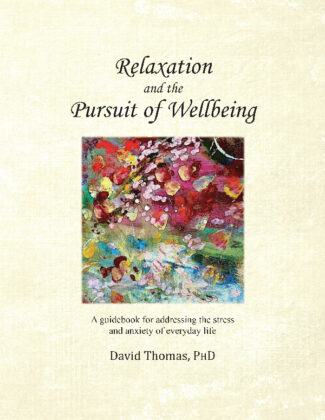Relaxation & the Pursuit of Wellbeing

115 pgs plus 60 pg scheduling and evaluation appendix
Order through area booksellers.
This book served as my dissertation. Its purpose was and is twofold: first, to teach “profound relaxation,” an extremely useful skill and for most people, an easy one to learn; and second, to discuss “differential relaxation”, the relaxation of everyday life.
The first two chapters focus on profound relaxation. Their purpose is to teach you to relax deeply—body and mind—in a single session of fifteen to twenty minutes. Like meditation, profound relaxation is considered an anti-stress response as it leads to an overall calming or quieting of the nervous system.
In addition to profound relaxation, this book—beginning with Chapter 3—introduces the notion of differential relaxation, what might be called the “at ease with yourself” mode of relaxation. Differential relaxation is not so much a skill as it is a way of being and doing. It means: Using only the tension and energy required to perform a given act properly, not over-doing and not forcing.
——————–
Perhaps the most important question posed by this book is: How do you deal with the issues, situations, and factors that bring excessive tension and anxiety into your life, the factors that threaten your wellbeing? This book provides exercises for identifying those factors and a strategy for addressing them. However, there are no quick fixes. For most of us wellbeing is a journey. This book is intended to help with that journey.
Topics include: the wisdom of the body, quieting the chattering mind, deliberate living, pain drains and addiction, will power and follow-through, forgiveness, choice and responsibility, the “heroic strategy”, the importance of sharing one’s gifts, talents and knowledge for the benefit of others.
Relaxation and the Pursuit of Wellbeing is designed for use by individuals, but can also be of use to therapists, counselors, and trainers when working with individuals or groups interested in reducing the tension and anxiety operating in their lives.
David Thomas, PhD
